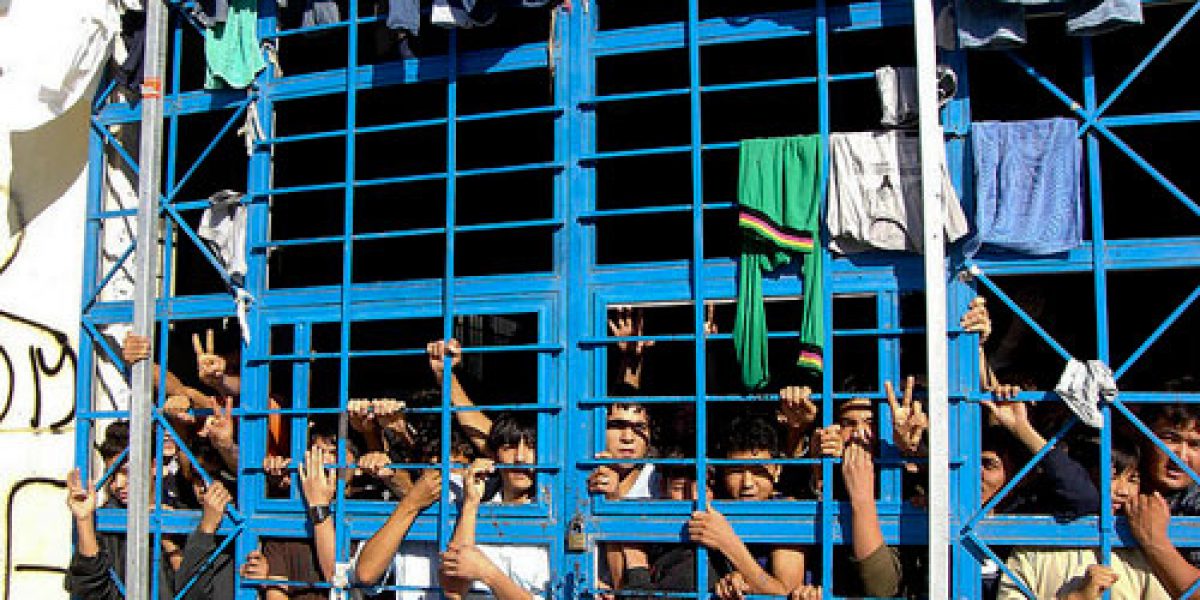Global: new guidelines on detention, a step forward
27 September 2012|Philip Amaral, Advocacy and Communications Coordinator, JRS Europe

Brussels, 27 September 2012 –Amid growing concern of the abuse of detention as a way of controlling the flow of asylum seekers, this week the UN refugee agency (UNHCR) published new guidelines for governments dealing with the issue. Although far from perfect from a JRS perspective, this document represents a step forward in the promotion of human rights.
“We are disappointed that many countries continue to hold asylum seekers in detention, sometimes for long periods and in poor conditions, including in some cases in prisons together with common criminals”, said a UNHCR spokesperson at a press briefing launch.
Until now governments and other organisations have relied on UNHCR detention guidelines published in 1999. However, the growing use of detention required the development of more specific guidelines. This has been accompanied by an evolving, albeit fragile, consensus on alternatives to migration detention. For instance, these alternatives would place asylum seekers and other migrants in open accommodation in the community, respecting their right to freedom of movement.
Keeping detention exceptional. UNHCR has always emphasised that asylum seekers ought to be detained only in truly exceptional circumstances.
Nonetheless, the 1999 guidelines interpreted exceptional circumstances more broadly than would have been hoped, allowing for detention to: verify a person’s identity, conduct a preliminary interview and protect public order. In addition, governments were given the green light to detain asylum seekers who had destroyed their travel documents in order to purposefully mislead the authorities.
These exceptions have been used by governments to detain asylum seekers without offering specific justifications. As far back as 2005, a JRS Europe research report concluded the 1999 guidelines were “too far-reaching”.
Given the difficulties asylum seekers face in obtaining passports and ID papers from their governments – frequently responsible for persecution – and visas from EU states, it is hardly surprising they are forced to use irregular means of travel. Yet having fled their home countries without proper travel documents, states have still felt justified in putting them into detention. A catch-22!
At a glance the new UNHCR guidelines seem a step backwards. They reiterate the 1999 justifications for detention and add two new ones: to prevent asylum seekers from absconding and in relation with ‘accelerated’ asylum procedures for those whose claims are ‘clearly abusive’.
Positively, these exceptions are more precisely delineated. For instance, UNHCR outlines the factors governments need to consider when assessing a person’s willingness to cooperate, such as past compliance with immigration procedures. UNHCR also stresses that governments consider a detainee’s family links in the country and their willingness to divulge necessary information to the authorities.
Even in cases where governments need to detain asylum seekers to verify their identity, UNHCR emphasises that “asylum seekers often have justifiable reasons for illegal entry”, and that the absence of documentation “should not be automatically interpreted as an unwillingness to cooperate”.
The decision to qualify the circumstances in which government use of detention is justified significantly reduces the possibility of abusing the rights of asylum seekers. These details can make a big difference.
The abnormality of detention. Overall the new guidelines strive to frame detention as an abnormal government response to asylum seekers. UNHCR asserts that the right to liberty is a “default position”, and that detention should “normally be avoided and be a measure of last resort”.
In reality, there are plenty of ways for governments to manage asylum flows without locking people up. The routine response of governments should be to work with asylum seekers while allowing them to reside in their host community as long as they have not infringed a law which would necessitate the deprivation of their liberty.
Whereas the 1999 guidelines merely list examples of alternatives to detention, the new version elaborates in greater detail by listing specific conditions that would ensure the success of such measures. These include providing asylum seekers with clear information, assistance from lawyers, reliable accommodation and individualised support from state authorities.
The emphasis on alternatives to detention is really encouraging. Such alternatives would not only lead to cost-savings and more efficient procedures, it might bring the actions of states into line with their stated values of hospitality, liberty, dignity and the rule of law.
Until that happens, we need to continue monitoring the actions of government and highlighting the discrepancy between policy and practice.


